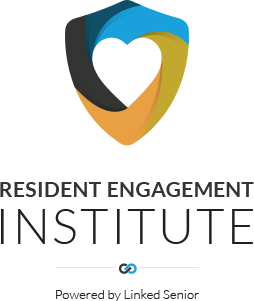Activities and events in the community are often the only opportunities for residents to socialize, get out of their routine and access person-centered experiences. Their participation enhances their skills and talent, helps stay at the highest functional level while helping them better understand their abilities. We also know that it enriches their lives, allays their anxiety and emotional distress and that the encouragement and recognition received enhance their self-worthiness. For demented residents, it has also been shown that higher level of activity reduces wandering.
Despite all these positive aspects, activity participation remains a challenge for the programming team as resident need constant reminding, support and encouragement to come and take part in the life of the community.
Here are 7 useful and easy to implement tips to ensure the highest participation:
1. Work with Marketing
When programming and marketing departments work together, wonderful things happen. It helps the marketing team to promote the life of the community while helping the activity department understand the needs of the newer residents. Often, the marketing team will have access to information panels, ideas and better ways to promote an event and sometimes might even want to fund some of the special events.
2. Plan ahead
The more one plans ahead, the more can be inserted in the activity calendar. One also wants to make sure that all residents have easy access to the monthly or weekly calendar. Visually impaired people might enjoy a large print version it.
3. Involve residents
The more the residents and their families take part in the activity planning, the more they will have the feeling that they are a part of the process and have ownership in what is happening in their community.
4. Incorporate Themes
There are lots of advantages of using themes in programming. Not only does it provide continuity for people that have some level of dementia by helping to keep them oriented, but it will also help in terms of creativity. Once a theme is selected, find different variations around it to come to robust programming for the month.
5. Strategize Timing
The more recurrent your programming structure is, the better the results will be. One should try to keep the same events at the same time of the day and/or the same day of the week. For example, if trivia is done on Tuesdays and Fridays around 11am, it shouldn’t suddenly be moved to Mondays and Fridays at 5pm, as habits are necessary for people with cognitive impairments. Along the same lines, special events should also respect that rule to consistently attract family members and the outside community.
6. Promote internally
With the approval of other departments, place ads for special events and/or weekly calendars in strategic locations. One important idea is to place reminders for the upcoming week on Fridays so family members visiting on weekends will get exposed to it.
7. Promote externally
To attract people beyond residents, one should make sure that all copies of the calendar and flyers for special events are sent regularly to the families and the outside community. It is also a very nice and cost effective way to market the community, something that the marketing department should be supporting.

